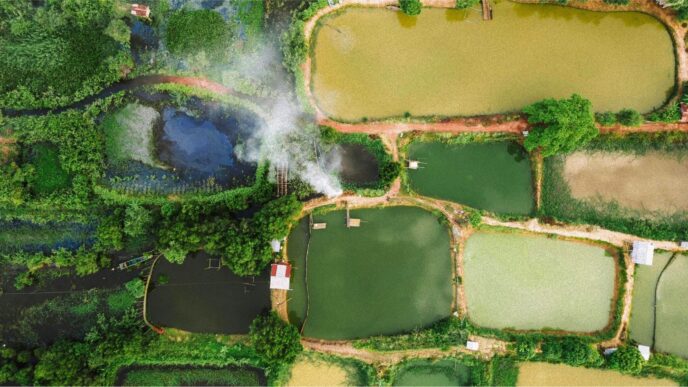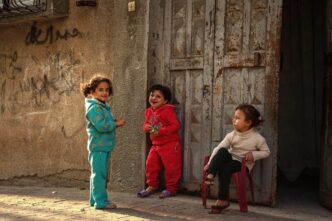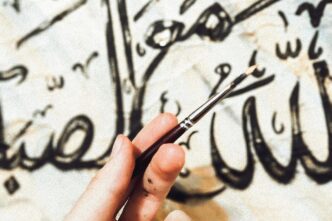In a world that claims to champion human rights, humanitarianism, and global justice, Muslim-led NGOs should be seen as vital actors in addressing poverty, disasters, and crises. Yet, instead of receiving the same level of trust and support as Western or secular NGOs, Muslim charities are treated as security risks, their funds frozen, their accounts shut down, and their operations restricted under the guise of counterterrorism.
This is not an accident—it is a direct consequence of systemic Islamophobia, political suspicion, and financial exclusion. In the wake of 9/11 and the subsequent “War on Terror,” Muslim-led humanitarian organizations have found themselves caught in a web of discrimination, double standards, and financial suppression that prevents them from delivering essential aid where it is most needed.
If humanitarianism is truly about saving lives, why are Muslim charities being pushed to the margins of global aid? Why are banking restrictions, counterterrorism laws, and political biases making it harder for Muslim organizations to provide food, medicine, and shelter to those in crisis? And most importantly, who is suffering the most from these barriers?
The answer is simple: The most vulnerable people in the world—Palestinians under siege, Syrians displaced by war, Yemenis on the brink of famine, and Rohingya refugees stripped of citizenship—are paying the ultimate price for this injustice.
The Systemic Barriers Facing Muslim-Led NGOs
While all humanitarian organizations face obstacles—bureaucratic red tape, funding shortfalls, and logistical hurdles—Muslim-led NGOs are uniquely burdened by systemic bias and discrimination.
- Banking institutions are shutting down their accounts without justification.
- Government agencies subject them to excessive scrutiny, even when they meet legal and compliance standards.
- Donors hesitate to contribute for fear of being flagged as supporters of extremism.
- Major international humanitarian funds sideline Muslim-led initiatives in favor of Western-run projects, even in Muslim-majority countries.
According to the Runnymede Trust, Islamophobia is deeply embedded in financial and institutional structures, impacting the ability of Muslim-led organizations to secure funding and partnerships. In short, Islamophobia is not just a social issue—it is an economic and humanitarian crisis.
How Counterterrorism Laws Are Used to Control Muslim Aid Work
The post-9/11 security landscape has fundamentally reshaped how Muslim charities operate. While counterterrorism laws are meant to prevent the financing of terrorism, in practice, they disproportionately target Muslim-led organizations, even when no evidence of wrongdoing exists.
- The USA PATRIOT Act and UK’s Counter-Terrorism and Security Act have been weaponized to restrict Muslim charities, making them undergo excessive security checks.
- Muslim-led NGOs frequently have their assets frozen or accounts closed by banks, simply due to vague concerns over “risk.”
- The fear of being blacklisted discourages donors from contributing to Muslim charities, even for causes like orphan sponsorship, disaster relief, or refugee aid.
According to the Charity & Security Network, these policies have created a chilling effect on Muslim humanitarian efforts, making it harder for them to operate freely. Instead of stopping terrorism, these laws criminalize charity work and leave crisis-stricken populations without aid.
Banking Restrictions: The Silent Weapon Against Muslim Charities
One of the most damaging obstacles Muslim NGOs face is financial exclusion. “De-risking”—a policy where banks refuse services to organizations they perceive as “high risk”—has been used to shut down Muslim charity bank accounts without warning or explanation.
- Islamic Relief Worldwide, one of the largest Muslim-led humanitarian organizations, had its bank accounts closed in the UK and US despite being fully compliant with financial regulations.
- Interpal, a British charity providing aid to Palestinians, had its accounts closed multiple times, severely limiting its ability to function.
- Major banks like HSBC, Barclays, and Lloyds have all been accused of discriminating against Muslim charities, despite these organizations being legally registered and audited.
The Human Security Collective reported that Muslim-led charities face significantly more banking restrictions than their secular counterparts, making it nearly impossible to transfer funds to crisis zones like Gaza, Syria, and Yemen, where aid is desperately needed.
This is not about financial safety—it is about systemic Islamophobia disguised as security policy.
Double Standards in Humanitarian Funding
The hypocrisy is glaring.
- Western NGOs working in the same conflict zones as Muslim charities do not face the same scrutiny.
- Crises in Ukraine, Haiti, and Bosnia receive billions in aid, while humanitarian emergencies in Muslim-majority countries like Sudan, Palestine, and Afghanistan are chronically underfunded.
- Western governments prefer to fund secular or non-Muslim-led organizations, even when Muslim NGOs have stronger community ties and a better understanding of local needs.
According to UN OCHA’s Humanitarian Funding Data, conflicts in the Middle East and Africa—regions heavily impacted by Islamophobia—receive significantly less funding than crises in the West. The political weaponization of aid ensures that Muslim-led NGOs remain at the bottom of the funding hierarchy.
The Political Weaponization of Islamophobia in Aid
Governments have deliberately used Islamophobia as a political tool to justify crackdowns on Muslim humanitarian organizations.
- France and Austria have aggressively targeted Muslim charities, shutting them down under the pretext of “anti-extremism” policies, despite no proven ties to terrorism.
- The UK’s Prevent strategy has been used to surveil Muslim-led aid groups, creating a climate of fear and distrust.
- Western media narratives consistently paint Muslim charities as “potential threats,” while secular NGOs are framed as “neutral humanitarians.”
According to an MIT Media Lab study on media bias, Muslim charities are overwhelmingly portrayed through a security lens, while Christian and secular charities are framed as benevolent and trustworthy.
This systematic demonization of Muslim NGOs is not just about discrimination—it is about control.
The Humanitarian Cost of These Barriers
When Muslim charities are blocked, restricted, or shut down, real people suffer.
- Rohingya refugees in Bangladesh lose access to food and medical care.
- Palestinians in Gaza go without clean water and essential supplies.
- Yemeni families facing famine are deprived of life-saving aid.
The ethical dilemma is clear:
When aid is blocked due to Islamophobia, who is really suffering?
The failure to provide equitable access to humanitarian funding is not just a policy issue—it is a moral crisis.
The Resilience of Muslim NGOs: Fighting Back
Despite these challenges, Muslim charities are not backing down.
- Many organizations are turning to alternative banking channels, including Islamic finance and crypto donations, to bypass Western banking restrictions.
- Legal advocacy groups like CAGE and the Islamic Human Rights Commission (IHRC) are challenging discriminatory policies in court.
- Muslim donors are stepping up, creating community-driven funding models to ensure self-sufficiency in humanitarian aid.
Conclusion: A Call for Equitable Humanitarianism
The Quran reminds us:
“Whoever saves a life, it is as if they have saved all of humanity.” (Quran 5:32)
If the global humanitarian system truly believes in saving lives, then it must stop treating Muslim-led NGOs as second-class charities.
- Banks must be held accountable for discriminatory de-risking policies.
- Governments must end the weaponization of counterterrorism laws against Muslim charities.
- The global Muslim community must build independent funding and advocacy networks to ensure that aid reaches those who need it most.
This is not just about charity—it is about justice. The world cannot afford to let Islamophobia dictate who gets to live and who is left to die.














